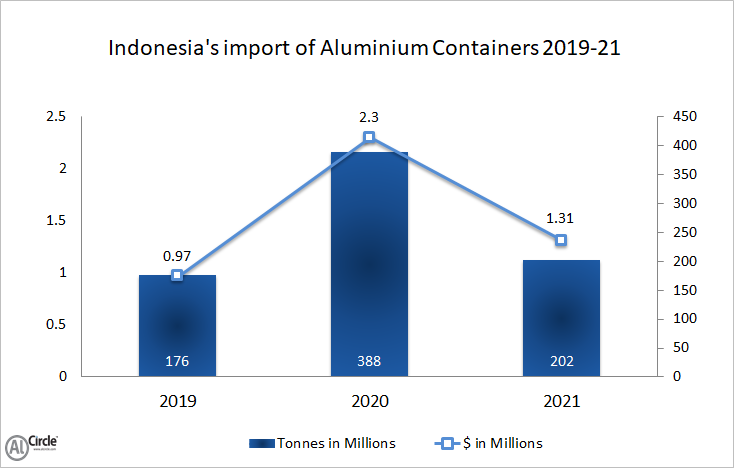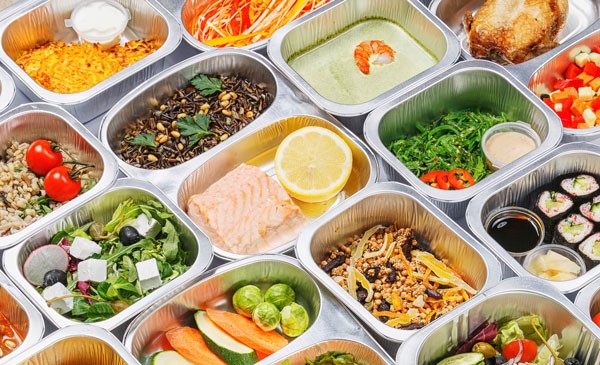

The aluminium food container is considered one of the budget-friendly food-grade containers and one of the customarily used packaging solutions across food industries. As metal aluminium is a poor insulator and doesn’t permit the heat to pass through, this makes aluminium foils and containers, the most preferred packaging solution. Aluminium foil reflects the thermal energy back to the food maintaining the inherent aroma, moisture, and flavour of the food.
The economy of Indonesia is a market-based economy, where the government plays a vital role, including administering prices for some basic goods such as fuel, rice and electricity. It is the world's fourth most populous nation and 10th largest economy in terms of purchasing power parity.
{alcircleadd}
The transcontinental nation in Southeast Asia and Oceania, Indonesia imported 564 tonnes of aluminium containers during 2019-20 and the expenditure counted for the import was $3.27 million.

In 2019, Indonesia imported 176 tonnes of aluminium containers and the expenditure occurred for the import accounted for $176 million, whereas, in 2020, the aluminium containers import illustrated an enterprising growth by 120.45%, as the import volume climbed to 388 tonnes and the expenditures augmented to $2.30 million.
The import for 2021 is analysed with a downfall by 47.93%, as the import volume is expected to plunge and remain at 202 tonnes and the expenditure to also slash at $1.31 million.
The major trading destinations for Indonesia’s import of aluminium containers are China, Netherlands, Singapore, etc.
Responses








